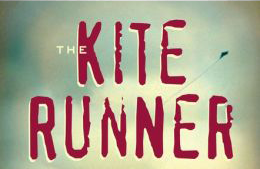There are now over 130 questions for Khaled Hosseini’s The Kite Runner. These questions address a range of Common Core Learning Standards for grades 11 and 12. Throughout their study of the novel, students will answer questions related to a basic understanding of characters, setting, events, literary terms, and vocabulary as well as higher level questions, requiring analysis of character and theme development throughout the novel. Through a mix of question types – from multiple choice and matching to graphic organizers, short answers, and essays – students will gain a comprehensive understanding of this complex and highly relevant novel.
This literature set can be found in the Novel topic, Levels J, K, and L.
To access these questions, please follow these steps:
- From your Teacher Center, click the Assignments
- Select the English Language Arts course from the drop down menu.
- Enter a name for the assignment and click Create New Assignment.
- On the question criteria page, be sure the Show Classic Courses button is UNCHECKED.
- Click ELA, check the Topics box on the filter by bar, and click START.
- You will find The Kite Runner under the Novel topic.
- Click the blue plus signs to expand The Kite Runner. This title narrows down to more specific areas of the literary work.
Once you have the areas you wish selected by checking the boxes, click the Save Choices & Show me questions button to be taken to the page to view individual questions and add them to your assignment.
Sample Questions:
[The Kite Runner, Chapter 3]Q: Chapter Three opens with the narrator describing local lore about Baba. The narrator states, “… if someone bragged that his son was a doctor, chances were the kid had once passed a biology test in high school. But no one ever doubted the veracity of any story about Baba.”
Based on context clues, the word veracity most nearly means
- source
- motive
- importance
- truthfulness
[The Kite Runner, Chapter 3]
Q: Amir overhears Baba and Rahim talking in the study. This discussion demonstrates the
- ability of a father to overcome his son’s weaknesses
- difference between the two men’s relationship with Amir
- lack of sincerity between the two men
- changes taking place in Amir as he gets older
[The Kite Runner, End of Novel]
Q: In Chapter Four, the reader learns the tale of Rostam and Sohrab. Read these words from Rostam’s son, Sohrab, as he is dying:
If thou art indeed my father, then hast thou stained thy sword in the life-blood of thy son. And thou didst it of thine obstinacy. For I sought to turn thee unto love, and I implored of thee thy name, for I thought to behold in thee the tokens recounted of my mother. But I appealed unto thy heart in vain, and now is the time gone for meeting…
Discuss why this story is such an important metaphor for later events in the text. Draw at least two comparisons between this epic and the events in The Kite Runner. Your response should be one paragraph using specific evidence from the text.
{{ script_embed(‘wistia’, ‘fn508znbkn’, ‘undefined’, ‘responsive’) }}

